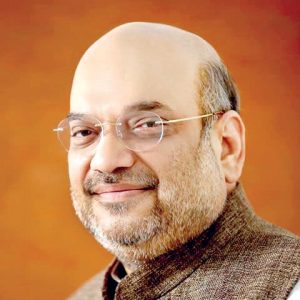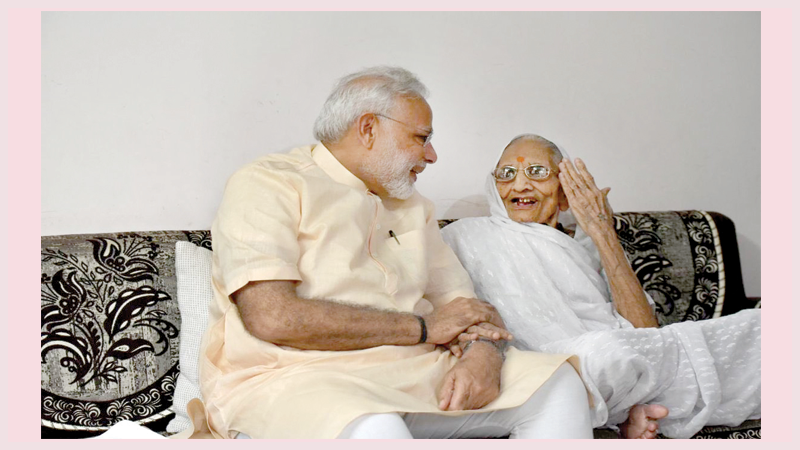
AMIT SHAH
The PM thinks big and is an institution builder par excellence
In the week gone by Prime Minister Narendra Modi interacted with lakhs of Asha, Anganwadi and ANM workers. These are grassroots health workers whose efforts impact a wide cross-section of society, especially the poor and those living in rural areas. Apart from his inspiring words to them commending their yeoman service to society, he also announced an increase in their honorarium. Along with improving their quality of life, it will also motivate them to perform their crucial roles even better.
Very often the PM reaches out to sections of society who are unsung heroes through his mobile app, letting them know they are most valued and their work is precious in nation building. Apart from health workers, he recently reached out to teachers thanking them for their contributions to society.
This is one sterling quality I have observed in Modi right from the earliest time I got the opportunity to work with him.
Everyone in the organisation or government, performing any kind of role, would be personally encouraged by him and made to feel special. This quality of recognising the importance of service and more importantly respecting those who put in their effort to serve others, is exemplary. This also shows his own spirit of service; every moment he wants to be involved in making India a better place.
It is also the mark of an excellent organisation and institution builder. Organisations and institutions are, at the end of the day, manned by people who put their shared vision above individual interests. Such sacrifices, when recognised by people of stature, only make an organisation stronger by boosting morale.
He was also someone with great attention to detail. For example, in many of our programmes, there would be a lamp lighting ceremony with which the programme would start. The cotton wicks used in lamps, if immersed in ghee beforehand, get lit immediately when a guest tries to light them. How-ever, if the same wick is dry, it takes a little longer. He would take care that even such minutiae were in place. Later, in the first decade of the 2000s he became the chief minister of Gujarat and marked himself out as an excellent administrator, which others in the Gujarat government imbibed from him.
Modi has always been very particular about law and order. He believes in fairness and justice, and encouraged us to simply work as per law without fear or favour. His ability to think big and implement it on the ground is exemplary. He had a vision of a bank account for every household. Action and implementation flowed out of that vision and more than 32 crore bank accounts have been opened under Jan Dhan Yojana. Having seen smoke filled kitchens first-hand, he wanted to ensure smoke free lives for poor women. What followed was more than 5 crore free LPG connections to poor women.
Another of his important attributes is that he does not think in terms of incidents but rather in terms of institutions. Individual contributions in terms of an incident here or an incident there are good, but for a vast nation like India, this is not enough.
Take, for example, his battle against corruption. That his probity and integrity are unquestionable is a fact accepted even by many of his adversaries. However, he did not rest. Instead, he set about equipping India with better laws and institutions that are institutionalising honesty and boosting transparency.
Be it notification of the Benami Property Act to act against a major haven for black money or the amendment of Prevention of Money Laundering Act to confiscate property equivalent of money stashed abroad, be it bringing the Fugitive Economic Offenders Act or demonetisation or the ending of interviews for some government jobs, an environment conducive for, and supportive of, honesty is being built around us.
Atalji was also a leader who similarly put the nation on the path of growth through multiple institutional reforms that breathed life into our economy. Roads, telecom, education, jobs, the economy overall took off thanks to his effective leadership. BJP came to be known as the party of good governance and party with a difference.
Similarly, even under Modi’s leadership rural roads are being built at twice the pace, highways are being built at more than double the pace than was the norm before. Electricity is reaching poor households and so is LPG; toilets are being built in crores of homes to boost access to safe sani-tation and a battle against malnutrition has been launched. The huge healthcare game changer – Ayushman Bharat – has also been initiated.
Such development is not happening in just one or two states or regions but in the whole of India. Consider the fact that some states in the north-east have been connected by rail for the first time ever. For the first time, almost every household in India has a bank account. This is a paradigm shift in governance that has also brought great goodwill and trust for BJP. When people speak of BJP being an ‘election machine’, it is actually development and progress that is BJP’s electoral machine.
The PM has helped BJP become a force even in regions where the party used to have a cursory presence, for example in the north-east. If BJP and its allies have been chosen by the people in state after state across regions, it is due to the good governance that Modi has successfully implemented and the ‘can do’ spirit of New India that he resonates.
(The writer is National President of BJP)


